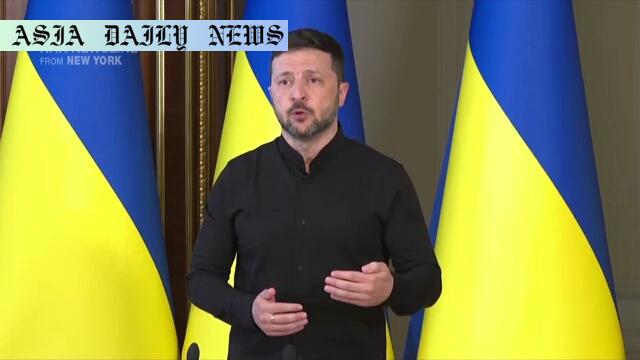Zelenskyy-Putin Talks, marking Ukraine’s direct move towards ceasefire negotiations supported by global powers.

Zelenskyy’s Bold Initiative for Direct Peace Talks
Ukrainian President Volodymyr Zelenskyy has announced his readiness to meet with Russian President Vladimir Putin in Turkey on Thursday for a high-stakes discussion aimed at establishing a mutual ceasefire. This unprecedented gesture marks a significant shift in Ukraine’s diplomatic strategy during ongoing conflicts. By emphasizing direct engagement with the highest level of Russian leadership, Zelenskyy seeks to establish an unconditional 30-day truce. Such a meeting, if it occurs, would symbolize a leap forward in addressing widespread devastation and hardship faced by Ukrainian citizens and soldiers alike.
Zelenskyy clarified his stance during a press conference in Kyiv, reiterating the importance of discussing terms directly with Putin. He emphasized that he would not engage in negotiations for the sake of optics but would focus on achieving actionable measures. According to Zelenskyy, Putin remains the ultimate decision-maker in Russia, and a deal between the two leaders could significantly alter the trajectory of the conflict. He also highlighted the strategic significance of hosting talks in Turkey, a neutral ground familiar with handling diplomatic disputes.
Global Allies Rally Support for Ukraine’s Diplomatic Efforts
The burgeoning geopolitical relevance of this summit is evident from its international endorsements. China has expressed its support for a ceasefire, signaling its position on fostering stability in the region. Additionally, U.S. President Donald Trump voiced his approval of the initiative during a speech in Saudi Arabia. Trump underscored the potential for “pretty good results” from the talks and committed to sending U.S. Secretary of State Marco Rubio to participate on behalf of the country.
Amid growing speculation, Trump’s involvement reflects U.S. geopolitical interests in supporting allies amidst uncertainties regarding Russian actions. Trump’s decision to dispatch Rubio adds weight to the negotiations space, enhancing Ukraine’s bargaining power. While the U.S. Secretary of State’s attendance signals additional support, some experts suggest involving multiple stakeholders including European leaders could amplify the impact of this summit.
Challenges and Opportunities Ahead of the Historic Summit
Putin’s stance remains somewhat ambiguous as no official confirmation about his personal involvement has been made yet. Dmitry Peskov, the Kremlin spokesperson, confirmed that representatives of the Russian government would travel to Istanbul to attend the scheduled talks, waiting for Ukraine’s delegation to appear. This raises questions about Putin’s willingness to turn words into concrete, actionable diplomacy. Analysts suggest the Russian leader might be reserving his card for strategic purposes, deciding closer to the date on whether to personally attend.
The summit also faces logistical and strategic challenges. Both nations remain entangled in deep-rooted conflicts that cannot be resolved solely through a single meeting. The agenda, scope of discussions, and nature of compromises required remain unconfirmed, adding to the unpredictability of the event. Nevertheless, the summit signifies a definitive diplomatic breakthrough that emphasizes dialogue over force.
Commentary
The High Stakes Behind the Zelenskyy-Putin Summit
The proposed summit between Ukrainian President Volodymyr Zelenskyy and Russian President Vladimir Putin represents a critical juncture in the ongoing conflict between their two nations. For Zelenskyy, his willingness to engage directly with Putin showcases an urgent desire to mitigate the crisis through diplomacy, even amidst uncertainty and global stakes. This approach is bold as it directly confronts the contentious issues surrounding the Ukraine-Russia conflict. However, it also presents a high risk considering Russia’s history and hesitance to negotiate unequivocally.
Geopolitical Implications of U.S. and China Involvement
The involvement of global players such as the U.S. and China highlights the international interest vested in these talks. Beijing’s support for a ceasefire demonstrates an unusual but potentially constructive position in the conflict, given its typically reserved stance. On the other hand, the proactive engagement of the United States, reflected through Trump’s optimism and the delegation of Secretary Rubio, emphasizes its leading role in fostering stability and supporting allied nations when challenged by aggressive forces.
Can the Talks Deliver Tangible Results?
For both Ukraine and Russia, the forthcoming Istanbul meeting offers an opportunity to reset and recalibrate their domestic priorities. However, skepticism continues to cloud the possibility of tangible outcomes. Russia’s withholding of confirmation regarding Putin’s direct involvement could signal a strategic reluctance and wariness towards escalations or perceived compromises. Similarly, while Ukraine’s push for a 30-day truce is commendable, ensuring compliance beyond paper agreements will be an arduous journey. Regardless of the summit’s final conclusions, this event showcases diplomacy as an essential method for resolving complex conflicts in the modern world.


